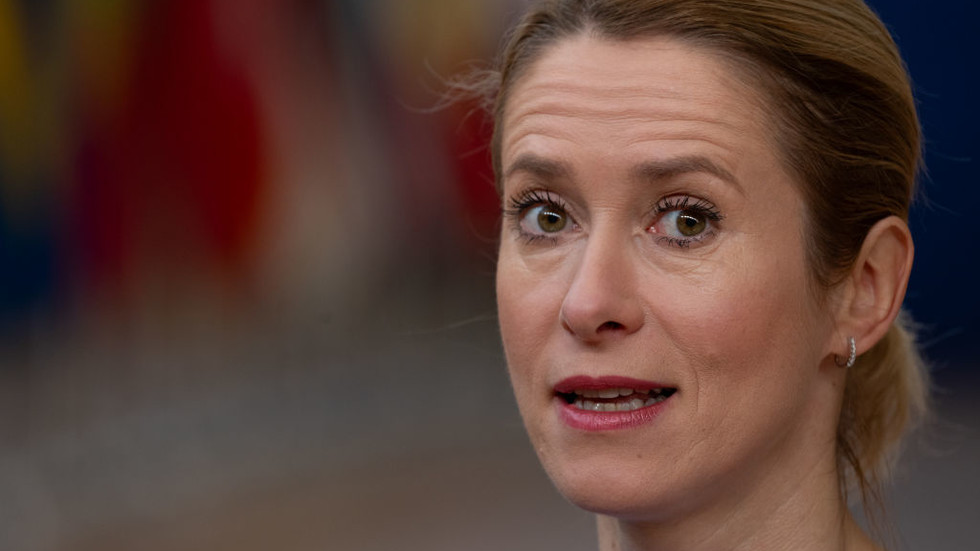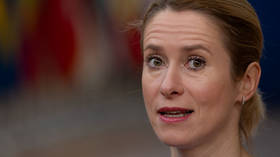
Estonia’s Kaja Kallas is reportedly viewed by some leaders as too aggressive toward Moscow to become foreign policy chief

© Getty Images / NurPhoto
Estonian Prime Minister Kaja Kallas is unlikely to succeed Spain’s Josep Borrell as the EU’s next foreign policy chief due to her aggressive stance on Russia, Politico reported on Monday, citing an anonymous official in the bloc.
Senior posts in the EU rotate every five years, and will next be redistributed following June’s European Parliament election.
According to Politico, the idea of Kallas replacing Borrell has been floated in recent months and is expected to be supported by French President Emmanuel Macron. Kallas’ vocal anti-Russian stance, however, may jeopardize her chances, an EU source told Politico, adding that the issue “remains sensitive.”
“I don’t see France and Germany agreeing to that, because of the same reasons she was not an option for the NATO job,” the source said, referring to earlier speculation that Kallas might take up the post of NATO secretary-general, in which she recently confirmed her interest.
“Are we really putting someone who likes to eat Russians for breakfast in this position?” the source added.
Kallas has been an outspoken critic of Russia over the Ukraine conflict, regularly referring to Moscow as “an aggressor” and suggesting NATO should have “all options on the table” to ensure “Russia loses this war.” She has also pitched legislation that would allow the demolition of Soviet WWII memorials from public spaces in Estonia.

According to Politico, Kallas may not be the only politician prevented from holding senior EU positions due to their stance on Russia – although leading officials in the Baltic states claim there is an “unfair bias” against them.
“The view in the [Baltic] region of Russia as an existential threat is often interpreted by their Western counterparts as hawkishness,” Politico noted.
Russia has repeatedly denied claims that it plans to attack Europe or wage a war with NATO. In his address last week to the Federal Assembly, the country’s national legislature, Russian President Vladimir Putin reiterated that such allegations are “nonsense.”




